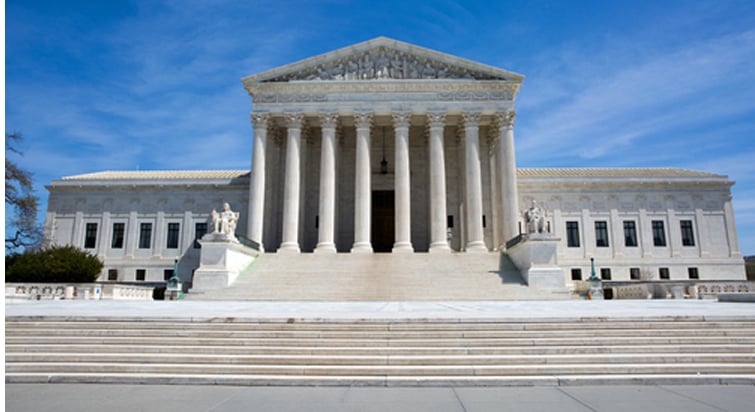Supreme Court rules for Muslim men seeking damages for alleged no-fly-list retaliation

Image from Shutterstock.com.
The U.S. Supreme Court ruled Thursday that federal officials can be liable for money damages in their individual capacities for violations of the Religious Freedom Restoration Act of 1993.
Justice Clarence Thomas wrote the unanimous opinion in the case of three Muslim men who say they were placed on the no-fly list for refusing to spy on their religious communities. Justice Amy Coney Barrett did not take part in the decision.
The plaintiffs in the case are Muhammad Tanvir, Jameel Algibhah and Naveed Shinwar. They claimed that their placement on the no-fly list cost them money from wasted airline tickets and from job opportunities lost.
The men were taken off the list more than a year after they sued, mooting their claims for injunctive relief. A federal judge tossed the men’s damages claim on the ground that the Religious Freedom Restoration Act doesn’t allow monetary relief.
The 2nd U.S. Circuit Court of Appeals at New York reversed, ruling that the Religious Freedom Restoration Act’s reference to “appropriate relief” includes a claim for money damages against government officials in their individual capacities. The Supreme Court affirmed.
In some cases, Thomas said, a damages remedy is the only form of relief for some Religious Freedom Restoration Act violations.
“For certain injuries, such as respondents’ wasted plane tickets, effective relief consists of damages, not an injunction,” he wrote.



